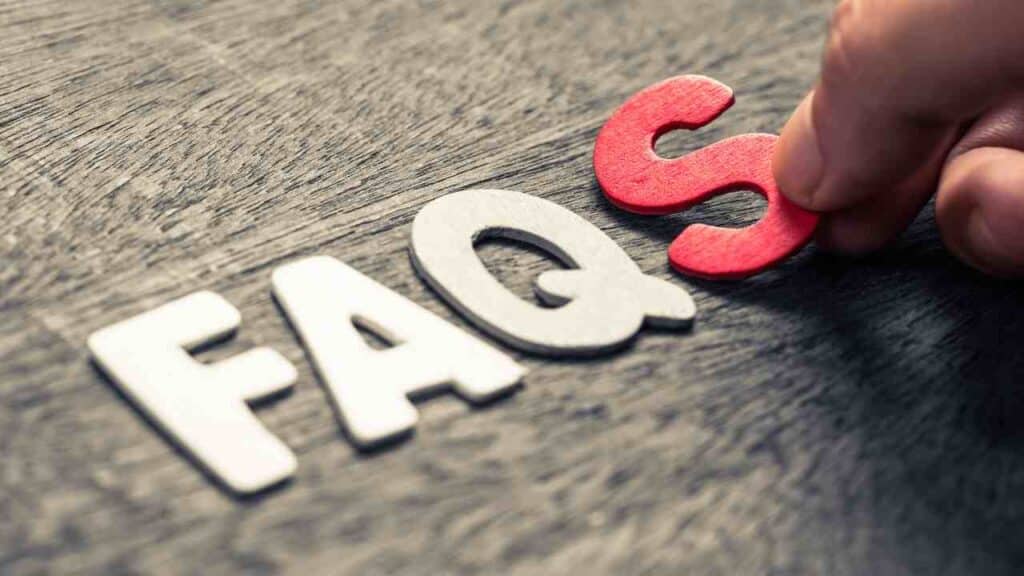What to Do to Secure CRM Data and Transactions

Get Your FREE 14-Day Trial and Take Your Business To The Next Level with an All-In-One Sales and Marketing Platform for businesses, agencies and marketers.
Customer Relationship Management (CRM) systems have become an essential tool for businesses of all sizes. They help companies manage their interactions with customers, streamline sales processes, and improve overall customer satisfaction. However, with the increasing reliance on CRM systems, the need for robust security measures to protect sensitive data and transactions has become paramount. In this article, we will explore the steps businesses can take to secure CRM data and transactions effectively.
The Importance of Securing CRM Data and Transactions
CRM systems contain a wealth of valuable information, including customer contact details, purchase history, and communication logs. This data is a goldmine for cybercriminals who can exploit it for various malicious purposes, such as identity theft, fraud, or selling it on the dark web. Additionally, CRM systems often handle financial transactions, making them an attractive target for hackers seeking to gain unauthorized access to payment information.
Failure to secure CRM data and transactions can have severe consequences for businesses. Not only can it result in financial losses due to fraud or legal penalties for non-compliance with data protection regulations, but it can also damage a company’s reputation and erode customer trust. Therefore, implementing robust security measures is crucial to protect both the business and its customers.
Best Practices for Securing CRM Data and Transactions
1. Implement Strong User Authentication: One of the first steps to secure CRM data and transactions is to ensure that only authorized users can access the system. Implementing strong user authentication measures, such as two-factor authentication (2FA) or biometric authentication, adds an extra layer of security by requiring users to provide additional proof of their identity.
2. Encrypt Data: Encryption is a fundamental security measure that protects data by converting it into an unreadable format. Implementing encryption for CRM data ensures that even if unauthorized individuals gain access to the data, they will not be able to decipher it. Encryption should be applied both at rest (when data is stored) and in transit (when data is being transmitted between systems).
3. Regularly Update and Patch CRM Software: CRM software providers often release updates and patches to address security vulnerabilities and improve system performance. Regularly updating and patching CRM software is essential to ensure that the system is protected against the latest threats. Failure to update software can leave the system vulnerable to known exploits.
4. Implement Role-Based Access Control: Role-based access control (RBAC) allows businesses to define different levels of access privileges based on user roles. By implementing RBAC, businesses can ensure that users only have access to the data and functionalities necessary for their job responsibilities. This reduces the risk of unauthorized access and limits the potential damage in case of a security breach.
5. Train Employees on Security Best Practices: Employees play a crucial role in maintaining the security of CRM data and transactions. It is essential to provide comprehensive training on security best practices, such as creating strong passwords, recognizing phishing attempts, and reporting suspicious activities. Regularly reminding employees about the importance of security and keeping them informed about the latest threats can significantly reduce the risk of human error leading to a security breach.
6. Monitor and Audit CRM Activity: Implementing robust monitoring and auditing mechanisms allows businesses to detect and respond to suspicious activities promptly. By monitoring CRM activity, businesses can identify unusual patterns or behaviors that may indicate a security breach. Regularly reviewing audit logs and conducting security audits can help identify vulnerabilities and ensure compliance with security policies.
Case Study: XYZ Company’s CRM Security Breach
In 2019, XYZ Company, a leading e-commerce retailer, experienced a significant security breach that compromised the personal and financial information of thousands of its customers. The breach occurred due to a vulnerability in their CRM system, which allowed hackers to gain unauthorized access to customer data and payment information.
The consequences of the security breach were severe for XYZ Company. They faced legal penalties for non-compliance with data protection regulations, lost customer trust, and suffered significant financial losses due to fraudulent transactions made using the stolen payment information. The incident highlighted the importance of implementing robust security measures to protect CRM data and transactions.
Statistics on CRM Security
Here are some eye-opening statistics that emphasize the importance of securing CRM data and transactions:
- According to a study by IBM, the average cost of a data breach is $3.86 million.
- Research by Verizon found that 43% of data breaches involved small businesses.
- A survey by Ponemon Institute revealed that 60% of organizations experienced a data breach caused by a third party.
- According to Cybersecurity Ventures, cybercrime is expected to cost the world $10.5 trillion annually by 2025.
Securing CRM data and transactions is of utmost importance for businesses to protect sensitive customer information, prevent fraud, and maintain customer trust. By implementing strong user authentication, encrypting data, regularly updating software, implementing role-based access control, training employees on security best practices, and monitoring CRM activity, businesses can significantly reduce the risk of a security breach. It is crucial for businesses to prioritize CRM security and stay informed about the latest threats and best practices to ensure the safety of their data and transactions.
For a comprehensive CRM solution that prioritizes security, consider using SaasExpert.ca – Your All-In-One Sales and Marketing Platform for small businesses, agency owners, and marketers. With SaasExpert.ca, you can rest assured that your CRM data and transactions are protected by industry-leading security measures.
Learn more about “Safeguarding CRM Data and Transactions” right here.
Frequently asked questions about What to Do to Secure CRM Data and Transactions.

1. 🧐 How Can I Perform a Risk Assessment for My CRM System?
Ah, hitting the bullseye right off the bat! 🎯 A risk assessment is like a health check-up but for your CRM. It helps you identify vulnerabilities and figure out how to tackle them. 🏥
Identify Assets: Know what data you have and where it resides in the system. 🗄️
Spot Vulnerabilities: Use tools or consult experts to find weak points in your CRM system. 🕵️♀️
Assess Threats: List potential threats like hackers, insider jobs, or even accidental data deletions. 🚫
Calculate Risks: Evaluate how damaging each threat could be. 💥
Prioritize: Focus on the high-impact, high-likelihood risks first. 🎯
Taking the time to assess risks can guide your overall strategy for securing your CRM data. 🛡️
2. 📲 Is Mobile Access to CRM Safe, and How Do I Secure It?
Awesome question! Mobile access is like having a pocket-sized treasure chest; it’s super convenient but can be risky if not secured. 📱💎
VPN: Always use a VPN when accessing CRM data remotely. 🛡️
Biometric Authentication: Fingerprint or facial recognition adds an extra layer of security. 👆👀
Regular Updates: Keep the mobile app updated to patch any security flaws. 🔄
Mobile Device Management (MDM): Implement MDM to control what data can be accessed from mobile devices. 📲🔒
3. 🤝 How Do Vendor Partnerships Impact CRM Security?
Aha, this is like wondering how your friends influence you! 🤗 Vendor partnerships can impact security in several ways:
Data Sharing: If you share CRM data with vendors, how secure are their systems? 🤔
API Security: When your CRM system interfaces with other software, the connection needs to be secure. 🔒
Contract Clauses: Always have security clauses in your contracts with vendors. 📝
Remember, your CRM system’s security is only as strong as the weakest link in the chain, which could be a vendor! ⛓️
4. 🕒 Is Real-time Monitoring Necessary for CRM Security?
Yes, it’s like having a watchdog that never sleeps! 🐶 Real-time monitoring helps you:
Detect Threats Instantly: The moment something fishy happens, you’ll know. 🐟🚫
Automate Responses: Set up actions that trigger if an anomaly is detected. 🚨
Audit Trails: Keep logs for any changes made in the system, who made them, and when. 📜
Real-time monitoring isn’t just a “nice-to-have;” it’s a “need-to-have.” 🌟
5. 📧 Are Emails and Communications Within My CRM Secure?
Oooh, communications security is often the elephant in the room that no one talks about! 🐘
Encryption: Encrypt emails end-to-end. 💌
Attachments: Be cautious with attachments. Run antivirus software to scan them. 📎🛡️
Phishing Awareness: Train your team to recognize phishing emails. 🎣
Secure Channels: Use secure communication channels approved by your IT department. 🗨️🔒
Remember, an unsecured email can be the key to your kingdom for hackers. So, keep that door locked! 🚪🔑
And there you have it, a rundown of what you can do to make your CRM system Fort Knox-level secure! Feel free to reach out if you have any more questions. 😊🔒
- crm
- customer relationship management
- What is CRM Software?
- What to Do to Secure CRM Data and Transactions






